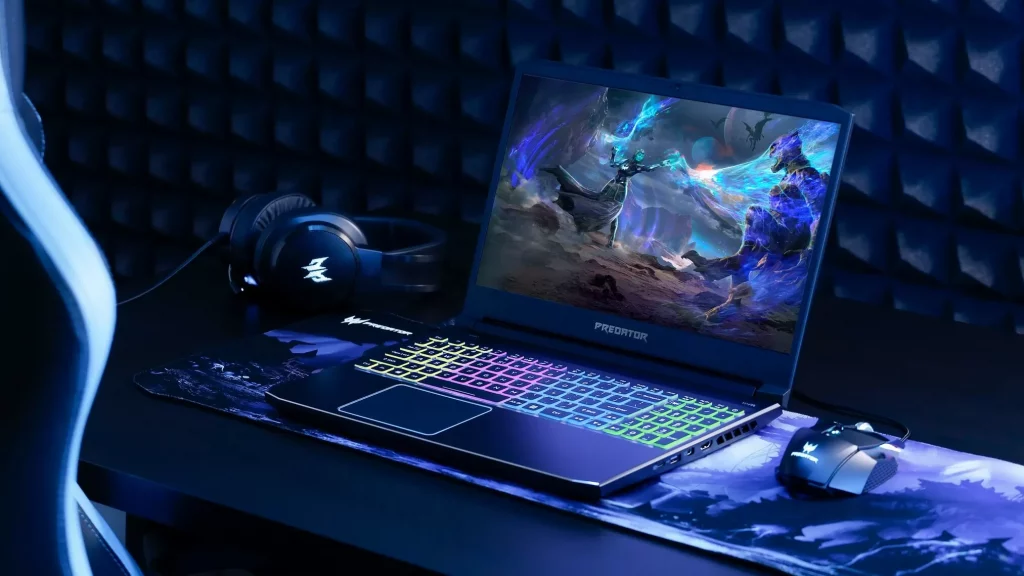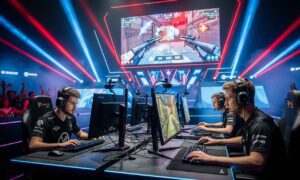The GPU shortage is easing, making it easier for gamers to buy a good machine. The only issue is choosing the best gaming laptop under 2500. They come in all shapes and sizes, but can they compete with other gaming machines? Desktop computers are preferred because they have more hardware upgrade options to extend their lifespan or boost performance. You can only play where your PC is set up because desktops are large devices that need to be connected to a monitor, keyboard, and other peripherals.
Laptops are ideal for gamers who want high-end hardware and portability. Before buying a laptop, consider more than just the battery life!
Screen Display
Home gaming requires a second monitor. If you don’t have a monitor, you need a good laptop screen. 13–17-inch screens are standard. But bigger is better. Larger screens make laptops less portable.
After screen size, resolution (pixels) is crucial. Resolution enhances image quality. 1440p/4K laptops replaced 1080p ones.
Think again! Choosing a laptop screen also involves the refresh rate. Hertz (Hz) is the screen’s refresh rate. Hertz = image. 100Hz displays 100 images per second. Increase refresh rates. 144Hz ensures smooth gaming.
High-performance screens are just the start. Screen output requires a powerful CPU and GPU.
CPU
The CPU is your laptop’s brain. The CPU processes software commands and sends signals to computer components. Clock speed, core count, and other specifications can be used to choose a CPU.
Clock speed
It will determine CPU retrieval and execution speed. CPUs are faster with higher clock speeds. It is measured in GHz.
Number of cores
CPU cores process data. More CPU cores mean more tasks.
CPUs abound. Overclocking unlocked CPUs increases power. Overclocking increases processor speed. CPU clock speed is its cycles per second. DIY overclocking boosts speed. However, faster CPUs run hotter, which can cause system issues, especially in laptops with poor cooling! Follow your hardware overclocking guides to prolong your new laptop’s lifespan.
GPU
Pixels are created by a GPU (Graphics Processing Unit). It works with the CPU to deliver high-resolution, smooth frame rates.
Most laptops have an integrated GPU, which is sufficient for most users. If you’re a gamer, you can get a more powerful GPU. Most gaming laptops come with a GeForce GTX GPU. These GPUs are generally less powerful than desktop cards of the same series, but optimisations mean they would perform similarly to plug-in systems.
Storage
Solid-state drives (SSDs) outperform mechanical hard disc drives (HDDs) in almost every gaming aspect. SSDs load files and programmes faster than HDDs, which speeds up game and system startup. SSDs don’t have spinning parts, generating less heat than HDDs.
Most gaming laptops have SSDs now. PCIe NVMe M.2 is the fastest interface. Your choice depends on storage needs. Many laptops allow you to upgrade or add another SSD, which you should look for because you can improve your system over time with upgraded parts.
RAM
RAM (Random Access Memory) stores data temporarily but makes retrieving it easier and faster for your CPU. Depending on your budget, gaming laptops can come with plenty of RAM. Some laptops allow you to upgrade their RAM later.
Consider all of the above before buying a gaming laptop. Storage and RAM are crucial, but if you need more money, you can upgrade them later. Feel free to focus on other aspects to get the best laptop. Make sure you can upgrade whatever model you choose!



































